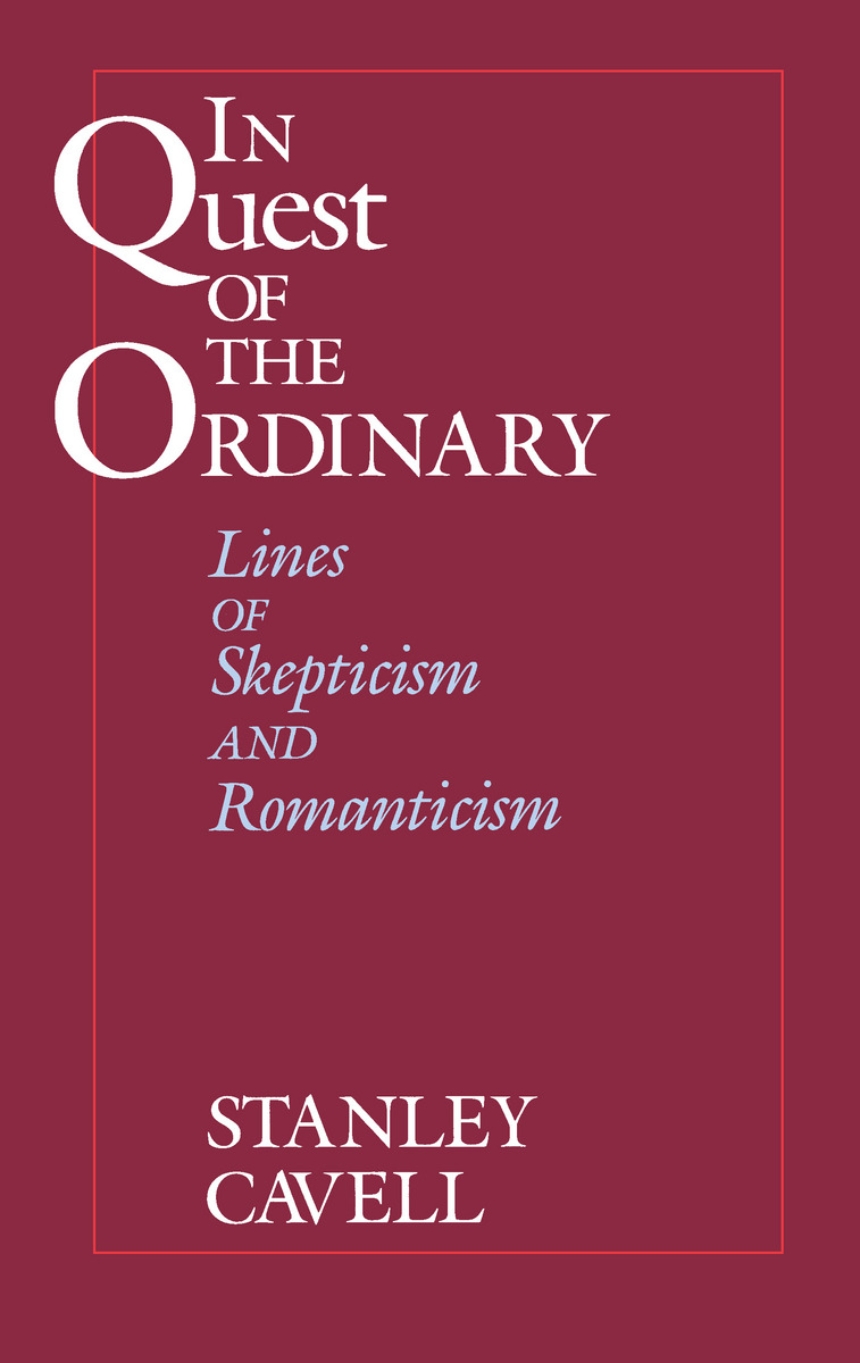In Quest of the Ordinary
Lines of Skepticism and Romanticism
These lectures by one of the most influential and original philosophers of the twentieth century constitute a sustained argument for the philosophical basis of romanticism, particularly in its American rendering. Through his examination of such authors as Emerson, Thoreau, Poe, Wordsworth, and Coleridge, Stanley Cavell shows that romanticism and American transcendentalism represent a serious philosophical response to the challenge of skepticism that underlies the writings of Wittgenstein and Austin on ordinary language.
Table of Contents
Preface and Acknowledgments
1: The Philosopher in American Life (Toward Thoreau and Emerson)
2: Emerson, Coleridge, Kant (Terms as Conditions)
3: Texts of Recovery (Coleridge, Wordsworth, Heidegger...)
4: Recounting Gains, Showing Losses (A Reading of The Winter’s Tale)
5: Being Odd, Getting Even (Descartes, Emerson, Poe)
Postscript A. Skepticism and a Word concerning Deconstruction
Postscript B. Poe’s Perversity and the Imp(ulse) of Skepticism
Postscript C. The Skeptical and the Metaphorical
6: The Uncanniness of the Ordinary
7: The Fantastic of Philosophy
Bibliography
Index
1: The Philosopher in American Life (Toward Thoreau and Emerson)
2: Emerson, Coleridge, Kant (Terms as Conditions)
3: Texts of Recovery (Coleridge, Wordsworth, Heidegger...)
4: Recounting Gains, Showing Losses (A Reading of The Winter’s Tale)
5: Being Odd, Getting Even (Descartes, Emerson, Poe)
Postscript A. Skepticism and a Word concerning Deconstruction
Postscript B. Poe’s Perversity and the Imp(ulse) of Skepticism
Postscript C. The Skeptical and the Metaphorical
6: The Uncanniness of the Ordinary
7: The Fantastic of Philosophy
Bibliography
Index
